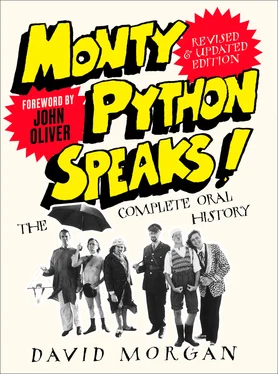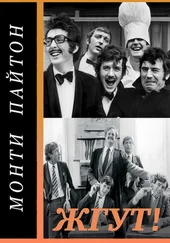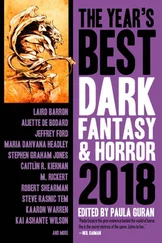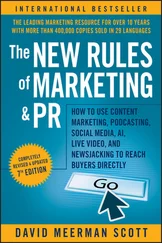1 ...8 9 10 12 13 14 ...21
DIRECTOR: CLOSE UP, ZOOM IN ON ME
Ian MacNaughton was an actor before becoming a director at the BBC in 1961. After several years toiling in the trenches of the Drama Department, he was offered a chance by the then–head of comedy to direct programming for the Light Entertainment Division.
IAN MACNAUGHTON:I asked the head of comedy why did he ask me and he had a very funny answer: he had been in Studio 3, where they were doing a Light Entertainment show, and someone came to him and said, ‘Do look into Studio 2, where they’re doing a drama series called Dr Finlay’s Casebook – they’re getting more laughs in there than you’re getting out here!’
Dr Finlay’s Casebook was a very turgid drama, it was too dramatic, and I arranged with the script editor to write something funny, a small scene before the end in which we have a bit of funny to heighten the tragedy at the end of the piece, and so this came about that way. The head of comedy did look in, and the next day he asked would I like to do the funnies? And I said, ‘Yes, very much!’
And so I joined the Light Entertainment branch and was immediately handed a Spike Milligan show, Q5. Now Spike Milligan is a rather eccentric comic clown, and I don’t think anybody else was very happy to work with him – he was a very undisciplined man – but we did the show and it was a reasonable success, and the Python boys had seen this show going out and they asked the BBC if they could have me direct their first series. The BBC said yes, and so that’s how we started together.
IDLE:In fact, I hardly remember Barry Took being involved at all; the key meeting was with MacNaughton. He was directing Spike and we all liked the mad direction those shows were going in, so we met him and he seemed loony enough, so we said, ‘Okay’. He couldn’t do the studio direction for the first four (though he did do the exterior filming), so John Howard Davies did those. He was more in control and a bit less of a loony, and I found him very helpful on the early acting because he was an actor – indeed, he was Oliver Twist in David Lean’s movie!
Ian’s great brilliance was that he didn’t get in the way.
PALIN:We had a few battles over a director, because in early meetings some of us had found John Howard Davies to be completely wrong for the ethos of Python ; he represented the most conventional, conservative side of BBC comedy. And there was this mad cat Ian MacNaughton, who seemed to represent the free spirit that we wanted. I remember a couple of fights over that – not fights, but sort of polite disagreements ; there were some tensions over that. John Cleese was very much a John Howard Davies man; in fact, he used John Howard Davies for all of Fawlty Towers. And Cleese was guarded about Ian MacNaughton; he didn’t like Ian because he drank, he was sometimes out of control, he was a mad incomprehensible Scotsman, and Cleese saw him allying with the sort of wild, passionate [Pythons] on the other side. But in the end we got Ian MacNaughton.
I think probably we did need somebody like that who was going to be responsive to our ideas. John Howard Davies was a nice man, and he did four shows (although Ian always directed the film sequences). Davies found that it wasn’t a natural sort of programme for him to do, whereas Ian was very responsive to all our ideas, especially if we had him do something different. He would be at home with the anti-authoritarian aspect of it, which was something he liked and rather identified with, whereas I think John Howard Davies was much more identified with BBC structure as it was then. He wasn’t the kind to be taking risks; he was an organization man.
Ian would take some risks. Ian was always somebody outside the organization, probably because of his lifestyle: he was a Scottish actor, he didn’t see himself as a metropolitan London man at all, which helped, because Python was never metropolitan. As Barry Took once pointed out (which was very acute), all of the Pythons come from the provinces and none of us were Londoners. We all saw London in a sense as slightly the enemy, a citadel to be conquered, and of course Ian was definitely from Glasgow – he had this anti-metropolitan attitude, which helped us.
CLEESE:Well, I suspect my view on this is rather different from the others’, because I thought John Howard Davies was very good. But he wasn’t as skilful with his cameras as Ian was; Ian was a very visual director. John was a very, very good judge of comedy. He wasn’t a tremendously verbal person, but his instincts were extraordinarily good, and he was very good at casting. So I had a lot of respect for him to do comedy, but I know that the more visually oriented people felt that the show took a big step forward (from the point of view of form as opposed to content) when Ian took over. And I thought Ian was pretty good, but I never thought he was particularly expert in the direction of comedy. He was always more bothered by how he was going to shoot it than he was about whether the sketch was really working or not, whereas John Howard Davies’ focus on just those first four shows he directed was more towards the content, even if he didn’t actually shoot it so well.
GILLIAM:Ian had worked with Spike Milligan, that’s why we liked the idea of Ian coming in. He wasn’t forced upon us; we lucked out. Ian worked, because he put up with things. Everybody pushed him around. I like Ian a lot, I mean just his personality.
Ian held it together, but we would be constantly going, ‘Shit, why is the camera on that ?’ But I think anybody would have been beaten up by us in the same way. He trotted on, he did it. If it had been left up to us, we couldn’t have done it, there’s just no way. We thought we could, but I’m sure we couldn’t have!
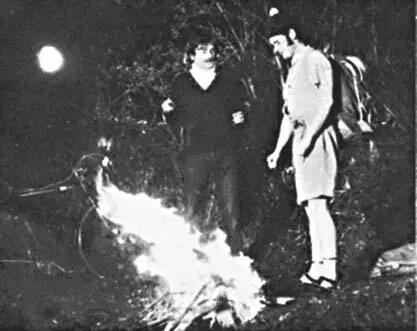
Ian MacNaughton directing Palin in ‘The Cycling Tour’.

TAKE-OFF The Control Freak Splunge! The Nice One The Cheeky One The Zealous Fanatic The Monosyllabic Minnesota Farm Boy The Group Dynamic AND NOW FOR SOMETHING COMPLETELY … THE SAME? FEAR AND LOATHING AT THE BBC MONTY PYTHON AND THE HOLY GRAIL THE US INVASION BEGINS THE FOURTH (AND FINAL) SORTIE CAUGHT IN PYTHON’S ORBIT LIFE OF BRIAN FLYING SOLO THE MEANING OF LIFE LE MORTE D’ARTHUR THE ‘IF YOU COULD SAVE ONLY ONE THING YOU’VE PRODUCED’ CHAPTER TWENTY-FIRST-CENTURY PYTHON SPAMALOT DÉJÀ REVUE EXITING THE STAGE FINAL THOUGHTS FOOTNOTES THE PYTHON OEUVRE SOURCES BIBLIOGRAPHY INDEX ACKNOWLEDGEMENTS ABOUT THE AUTHOR ABOUT THE PUBLISHER
LET’S GET THE BACON DELIVERED
As the group prepared for the first series of Monty Python’s Flying Circus (which began recording in August 1969), the notion of applying a stream-of-consciousness style to the show’s content and execution was accepted.
PALIN:Certainly Terry Gilliam provided an example of how you could do stream-of-consciousness comedy in his animations, which he’d done on Do Not Adjust Your Set . We thought those were remarkable and a real breakthrough; there was nothing like that being done on British television. We loved the way the ideas flowed one into another.
Terry Jones was very interested in the form of the show, wanting it to be different from any other – not only should we write better material than anybody else, but we should write in a different shape from any other comedy show. And probably Terry Jones and myself saw (or were easily persuaded) that Gilliam’s way of doing animation maybe held a clue to how we could do it. It didn’t matter if sketches didn’t have a beginning or end, we could just have some bits here or there, we could do it more like a sort of collage effect. I remember that everyone was quite enthusiastic about this, but it would have almost certainly come from Terry Gilliam, Terry Jones, and myself.
Читать дальше
